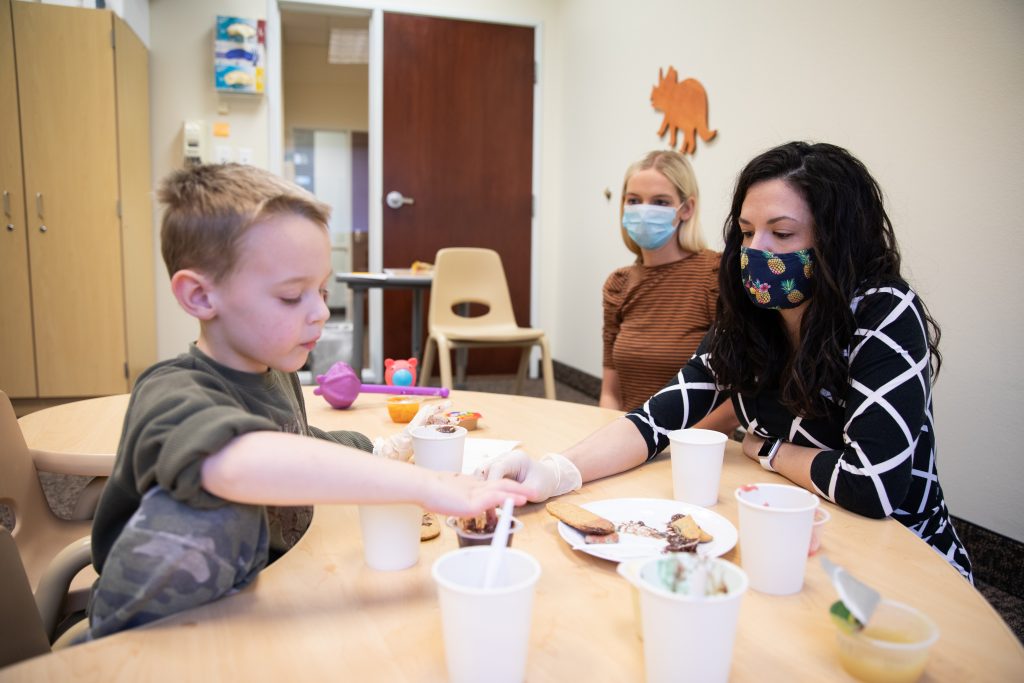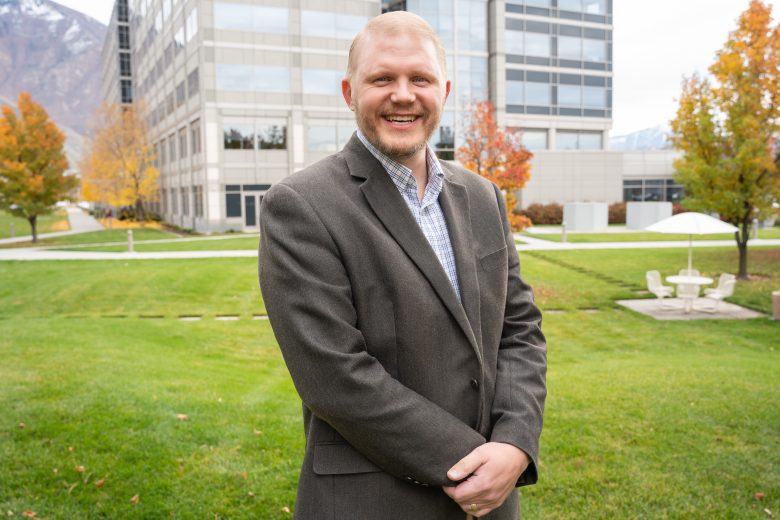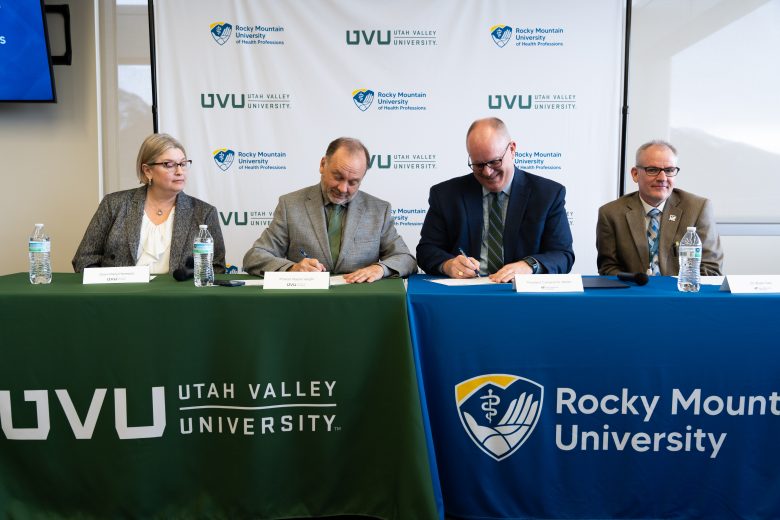“We know eating keeps us alive, but it’s important to remember that eating also adds a lot to our quality of life,” says ElBea Stonier, MS, CCC-SLP, an Assistant Clinical Professor for the Master of Science in Medical Speech-Language Pathology (MS MedSLP) program at Rocky Mountain University of Health Professions (RMUoHP).

However, for many children, feeding is a daily struggle, whether it’s difficulty intaking, chewing, or even swallowing their food, creating a significant burden for both them and their families. Stonier explains, “For many of us, food is an important part of our individual culture and social life. We might celebrate graduations, birthdays, or milestones, connect with each other, grieve with each other over a meal. For families who experience a lot of stress around mealtimes, it can have a significant impact on their quality of life.”
To help relieve this burden, RMUoHP’s Center for Communication Disorders (CCD) started a Pediatric Feeding Clinic. The clinic utilizes an interdisciplinary staff, ranging from a registered dietician to graduate student clinicians, to ensure exceptional, qualified care no matter the child’s condition.
At many healthcare facilities in Utah, this kind of high-quality care comes at a price most patients and their families cannot afford to pay, whether that’s due to high costs for treatment, lack of insurance, or long-distance travel required for appointments. The clinic makes it easier for these families by focusing on providing no-cost, quality care to both the underserved and underinsured. “There are some really great pediatric services in Utah,” Stonier says, “but often there are barriers that keep people from getting what they need. The Pediatric Feeding Clinic provides a much needed service to south Utah County that is accessible and convenient.”
When the clinic originally opened in early 2020, the onset of the COVID-19 pandemic forced those at the clinic to make unforeseen adjustments and deal with unexpected challenges. Stonier describes, “The pandemic has thrown so many curveballs since then, so the process has not been what we envisioned.” Despite the difficulties, those at the clinic are still committed to finding the best way to provide the highest quality of care to the community.
The Pediatric Feeding Clinic is not only good news for the local community, but also for the RMUoHP speech-language pathology students who do clinical studies there. The clinic provides a unique opportunity for students to learn about pediatric feeding and swallowing in a clinical setting–an experience that can almost be considered an academic luxury due to its scarcity among graduate programs.
Students learn about individual patient care and the importance of involving family in the treatment process. Because of the variety of medical disciplines present at the clinic, these students will also walk away more prepared to, as Stonier puts it, “communicate with, provide support to, and seek support from their colleagues in other disciplines.”
In addition to all it has accomplished, the Pediatric Feeding Clinic is continuing to expand its outreach and influence, hoping to add new groups and services this summer.
To learn more about the Pediatric Feeding Clinic, visit the Center for Communication Disorders website.



